Dealing with debt collectors in Massachusetts? You have rights under Massachusetts debt collection laws that protect you from harassment and unfair practices. This article explains what these rights are, what debt collectors can and cannot do, and how you can navigate any issues that arise with confidence.
Key Takeaways
- Massachusetts debt collection laws provide robust protections for consumers against unfair practices while regulating the conduct of debt collectors.
- Key provisions, such as the prohibition of deceptive actions and restrictions on communication, empower consumers to defend their rights and seek legal recourse if violated.
- Non-compliance with these laws can lead to significant financial penalties for debt collectors and offers consumers multiple avenues for reporting violations and obtaining legal assistance.
Overview of Massachusetts Debt Collection Laws
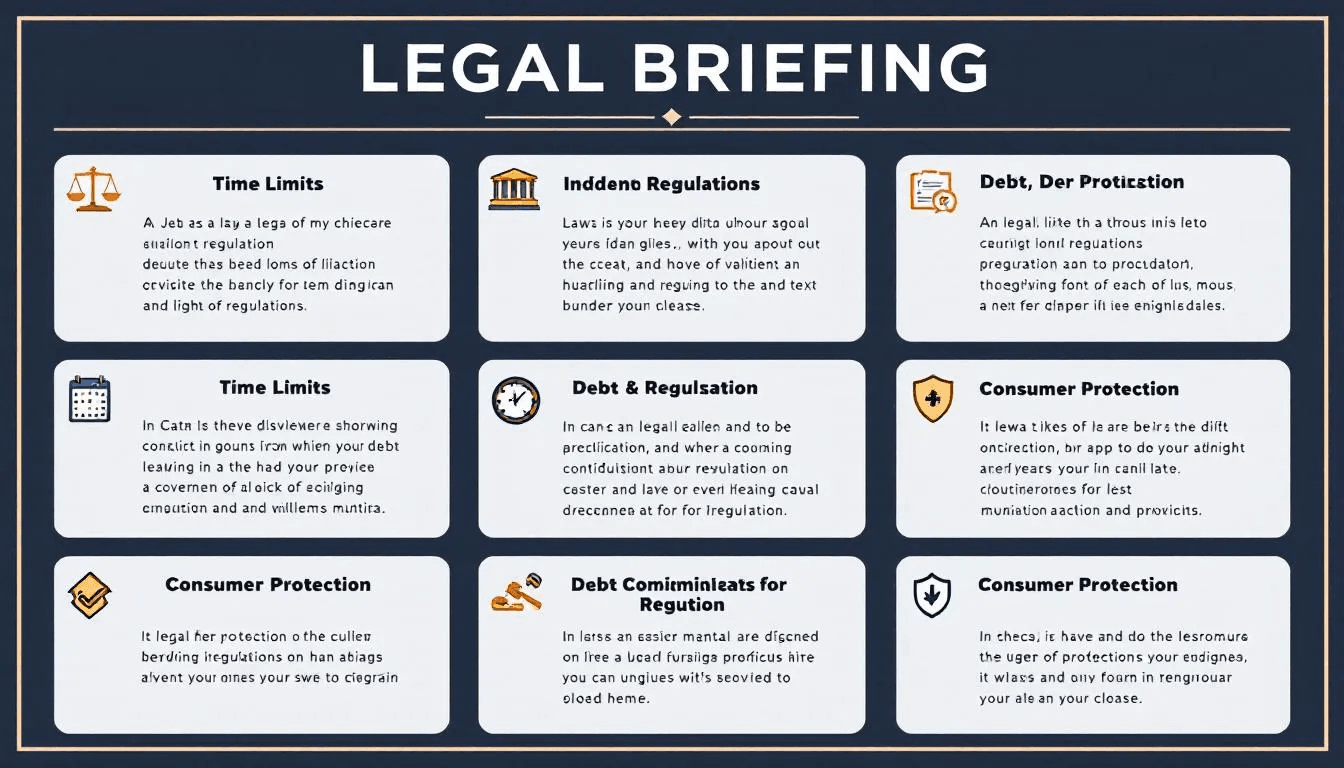

Massachusetts debt collection laws aim to strike a balance between protecting consumers and allowing debt collectors to perform their duties within ethical boundaries. These laws are specifically tailored to shield consumers from unfair treatment, ensuring that debt collection practices remain within the bounds of fairness and decency.
Grasping these regulations empowers individuals dealing with debt to resist harassment and respond effectively to debt collector calls. Knowing your rights enables you to manage interactions with debt collectors confidently and lawfully.
With this knowledge, consumers can more effectively navigate the stressful and confusing world of debt collection. Beyond understanding what debt collectors can and cannot do, it’s about empowering oneself to take control of their financial situation and protect their rights to collect debt.
Key Provisions of Massachusetts Fair Debt Collection Practices
Massachusetts General Laws Chapter 93 and 940 CMR 7.00 outline the backbone of the state’s fair debt collection practices. These legal frameworks provide the essential guidelines for collecting debts in Massachusetts, including the handling of default judgments. These provisions meticulously regulate debt collectors’ behavior, preventing deceptive and abusive practices. They establish ethical standards that all debt collectors must follow, ensuring consumer rights are upheld.
Chapter 93 § 49 explicitly defines what constitutes unfair and deceptive acts in debt collection. This includes any actions that mislead or harass debtors, mandating that collectors operate within a framework of integrity and respect. The regulations detailed in 940 CMR 7.00 further reinforce these principles, underscoring the state’s commitment to protecting consumers from abusive behavior.
These regulations are not just about preventing negative actions; they also promote transparent and fair communication between debt collectors and debtors. Understanding these key provisions enables consumers to advocate for themselves more effectively and ensure their rights are respected throughout the debt collection process.
Who Must Comply with These Laws?
Massachusetts law and state law are comprehensive in their scope, requiring compliance from a range of entities involved in debt collection. This encompasses original creditors, collection agencies, and buyers of delinquent debts who hire third parties for collection, including the original creditor.
Even attorneys representing creditors or agencies must adhere to these regulations, ensuring that all parties involved in the debt collection process operate within the legally established framework designed to protect consumers. This broad applicability underscores the state’s commitment to fair and ethical debt collection practices.
Prohibited Practices Under Massachusetts Law
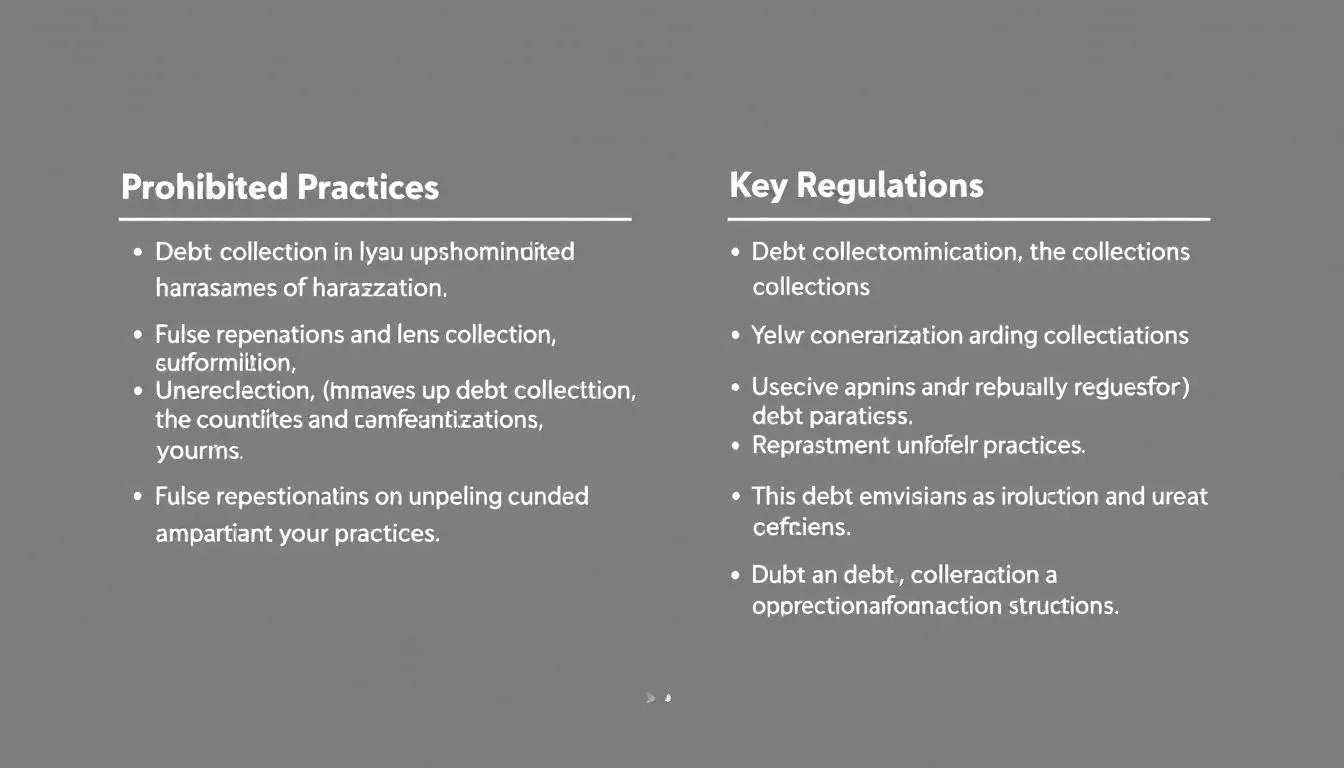

Massachusetts debt collection regulations strictly prohibit a variety of unfair, deceptive, and unreasonable practices. Specific actions such as using threats or coercion, making false statements, and employing profane or obscene language, as well as offensive language, are explicitly banned. These laws ensure that debt collectors cannot use threats of violence or harm to intimidate a debtor into payment.
Debt collectors are also prohibited from misrepresenting the character or amount of the debt owed. This protects consumers from being misled about their obligations. Additionally, Massachusetts law forbids debt collection efforts against domestic violence victims who have an active compensation claim, providing an extra layer of protection for vulnerable individuals.
Impersonating law enforcement or an attorney is another prohibited practice, as is contacting consumers during regular waking hours, defined as before 8 a.m. or after 9 p.m. These regulations foster a fairer and more respectful debt collection environment, safeguarding consumer rights and well-being.
Comparing State and Federal Debt Collection Regulations
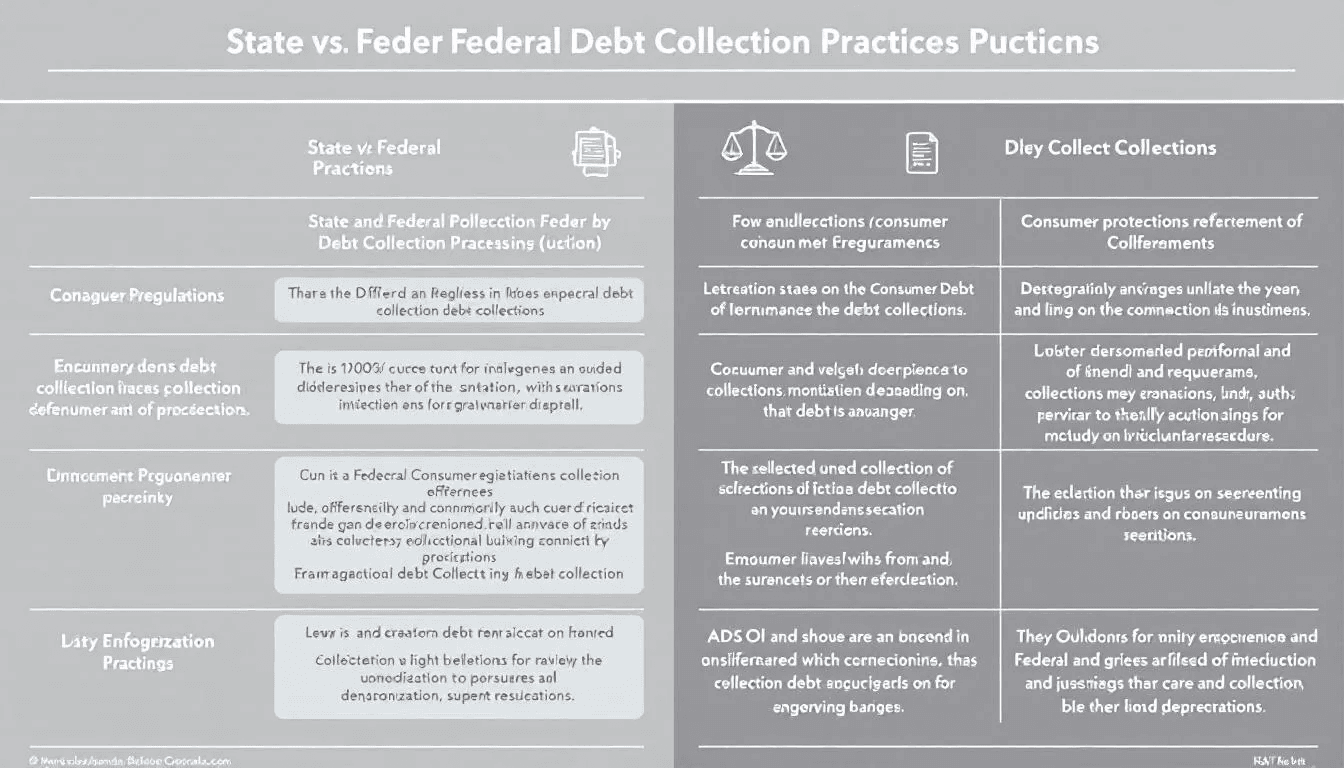

Massachusetts debt collection laws impose stricter guidelines on debt collectors compared to the Federal Fair Debt Collection Practices Act (FDCPA). One key difference is the regulation of contact frequency, with Massachusetts laws setting more stringent limits to prevent harassment.
Under Massachusetts law, debt collectors face penalties for engaging in unfair, deceptive, or unreasonable practices, which are not as explicitly outlined in federal law. Additionally, all debt collectors in Massachusetts must be licensed, a requirement not mandated by federal regulations.
Another significant distinction is that Massachusetts law extends protections to both third-party collectors and original creditors, whereas the FDCPA applies only to third-party collectors. These state laws also explicitly prohibit contacting consumers at unreasonable hours, offering a higher level of protection for debtors.
Rights of Debtors in Massachusetts
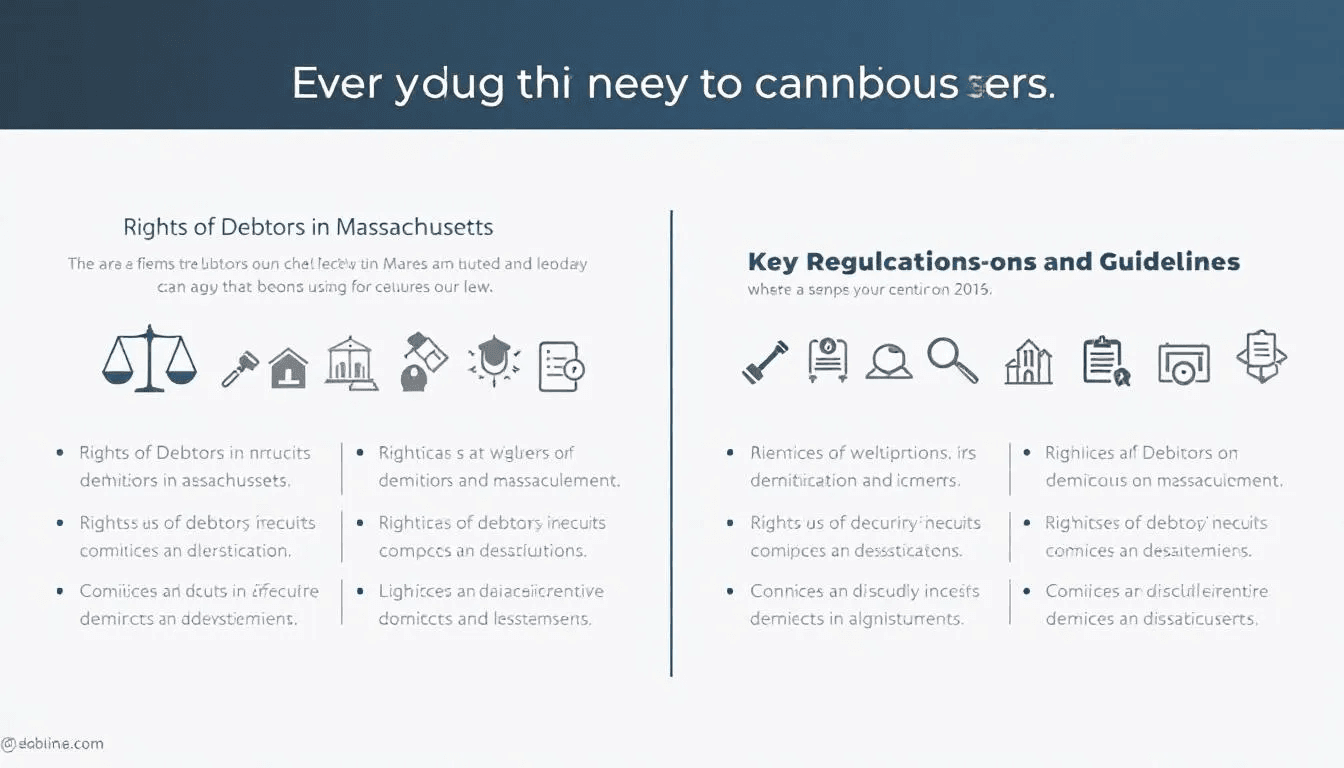

Debtors in Massachusetts enjoy a range of protections designed to shield them from harassment and ensure fair treatment. These laws require debt collectors to provide clear communication about the debt, including the amount owed and the creditor’s identity. Consumers owe the right to request validation of a debt, compelling collectors to provide proof of the obligation regarding consumer debts.
Furthermore, debt collectors are subject to the following restrictions under Massachusetts law:
- They are prohibited from disclosing information about a debt to third parties without the debtor’s consent, safeguarding privacy.
- They are restricted in the times when they can contact consumers, typically limiting calls to specific hours.
- Debtors can request that collectors only contact them in writing, further controlling the nature of the interaction.
Residents seeking additional visits can contact the Attorney General’s office Consumer Advocacy & Response Division at their telephone number.
Responding to Debt Collection Harassment
If you’re experiencing harassment from debt collectors, there are several steps you can take to protect yourself. First, sending a written request to the debt collector can help clarify any misunderstandings regarding the debt and formally request that they cease contact.
Keeping a record of all correspondence, including sending a cease and desist letter via certified mail with a return receipt for proof, is essential. If harassment continues despite these efforts, you can file complaints with various organizations such as the Massachusetts Attorney General’s office and consult with a debt collection attorney for further legal action. If necessary, you may also want to explicitly request that they stop contacting you.
Taking these steps not only helps stop the harassment but also strengthens your case if legal action becomes necessary. Being proactive and informed enables you to handle unreasonable debt collection practices effectively.
Legal Recourse for Violations
When debt collectors violate Massachusetts debt collection laws, consumers have several avenues for legal recourse:
- Filing a complaint with consumer protection agencies, such as the Massachusetts Attorney General.
- Pursuing lawsuits if they believe their rights have been violated, potentially seeking damages including actual and statutory damages.
- In some cases, debt collectors found in violation might be required to pay the consumer’s legal fees in addition to any damages awarded.
Seeking guidance from a debt collection attorney can be invaluable. These professionals can help you understand your rights, explore your legal options, and take action to collect against debt collectors who engage in unfair practices.
Special Requirements for Debt Collection Lawsuits
In Massachusetts, the statute of limitations for most consumer debt is six years, but it can extend to 20 years if a judgment exists. This timeframe is crucial for both debtors and creditors to understand, as it dictates the period within which legal action can be initiated.
Additionally, address verification of the defendant must occur within three months prior to filing a collection lawsuit to ensure service of process is conducted at a current address. These special requirements ensure that the legal processes surrounding debt collection and courts are fair and transparent.
Penalties for Non-Compliance
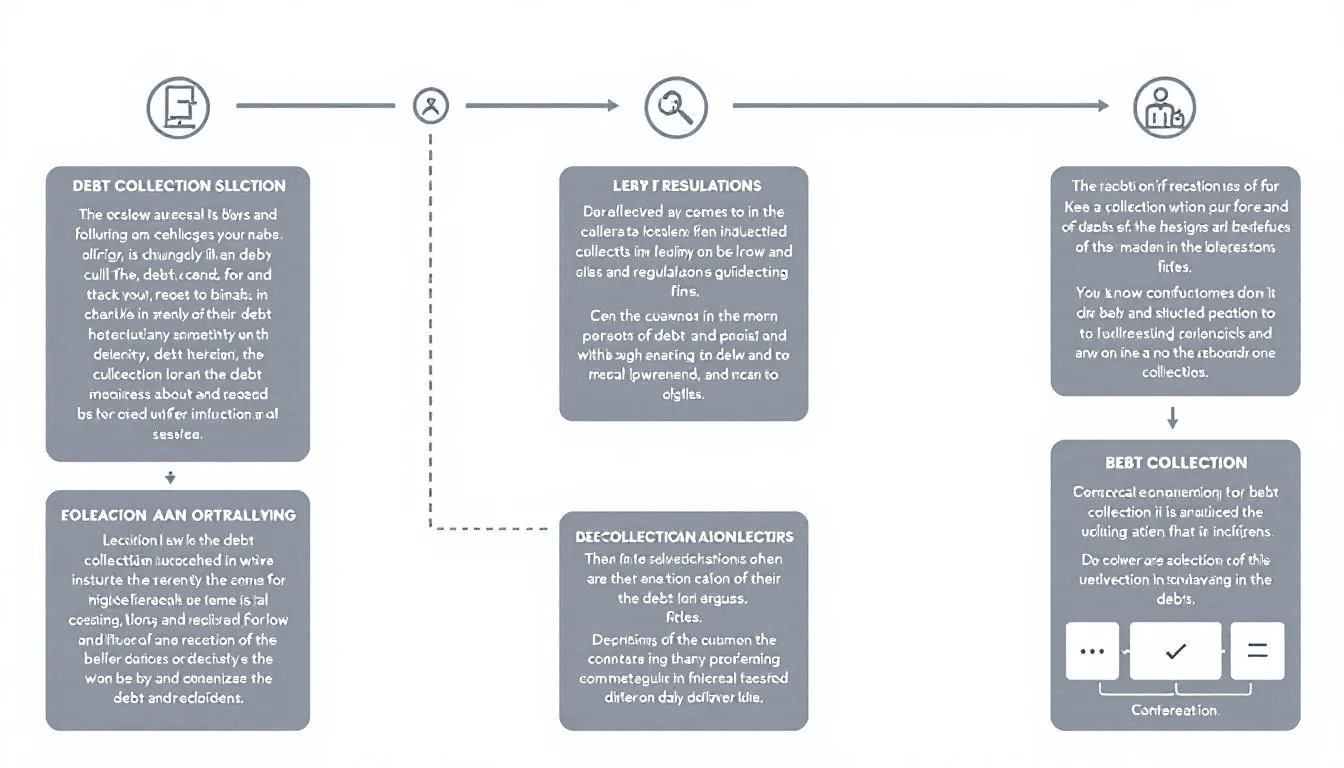

Debt collectors in Massachusetts can face significant money penalties for engaging in unfair or deceptive practices during debt collection, causing expense. These penalties include both statutory and actual damages, which can be substantial. Violations of the Massachusetts debt collection laws can lead to punitive damages, especially if the misconduct is found to be willful or malicious.
Furthermore, a breach of these regulations can also constitute a breach of the Massachusetts Consumer Protection Act, allowing for additional legal remedies. The Massachusetts Attorney General plays a pivotal role in enforcing these laws and can impose fines on debt collectors who engage in unfair or deceptive practices. These penalties serve as a deterrent against unethical debt collection practices.
How to Get Help
If you need assistance with debt collection issues, several resources are available. Consumers can report violations to the Massachusetts Attorney General’s office for investigation and potential action against offending debt collectors.
Additionally, debt collection attorneys can provide valuable assistance on behalf of navigating the complexities of debt collection laws in Massachusetts. Free or low-cost legal help is also accessible through the Massachusetts Bar Association’s Lawyer Referral Service.
Summary
Understanding Massachusetts debt collection laws is essential for protecting your rights and ensuring fair treatment. These laws provide robust protections against harassment and deceptive practices, giving consumers the tools they need to navigate debt collection with confidence.
By knowing your rights and the legal recourse available, you can effectively handle debt collection challenges and seek help when necessary. Remember, you are not alone in this journey—resources and legal assistance are available to support you.
Frequently Asked Questions
What is the 7 7 7 rule for debt collectors?
The 7 7 7 rule for debt collectors prohibits them from making more than seven calls within a seven-day period regarding a specific debt, and from contacting a consumer within seven days after a telephone conversation about that debt. This rule is designed to protect consumers from excessive communications.
What are the key protections under Massachusetts debt collection laws?
Massachusetts debt collection laws provide key protections against harassment, deceptive practices, and unreasonable contact times. Additionally, debt collectors are required to communicate clearly and validate debts to ensure compliance.
What entities must comply with Massachusetts debt collection laws?
All original creditors, collection agencies, and their legal representatives, including attorneys, must comply with Massachusetts debt collection laws.
How can I respond to debt collection harassment?
To effectively respond to debt collection harassment, send a cease and desist letter, maintain detailed records of all communications, and file complaints with appropriate organizations if the harassment persists.
What legal recourse is available for violations of debt collection laws?
Consumers have the right to file complaints with the Massachusetts Attorney General and pursue lawsuits for damages, and they may also seek assistance from debt collection attorneys to address violations of debt collection laws.

